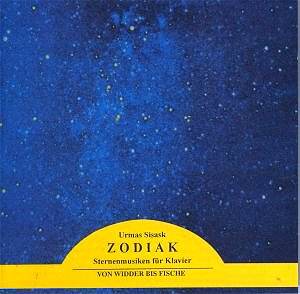In the UK ClassicFM with its laid-back and populist style commands
listener numbers approaching three times those of Radio 3. It
is commercial and sustained by advertising: Virgin Trains, Kleenex,
Halifax etc. Perhaps similar phenomena exist in other countries.
In any event ClassicFM while happily playing individual movements
of major works and mixing in film music (Saving Private Ryan,
Star Wars, Indiana Jones etc) also uses a contemporary
genre which you will not see reviewed in Gramophone, Fanfare or
International Record Review. Where else will you hear the music
of Lodovico Einaudi and Karl Jenkins. A generation in numbers
greater than those ever captivated by the staples of Radio 3 is
growing to redefine the fences that mark out the classical field.
These composers' commercially astute and calculated brand of tuneful
undemanding minimalism blended with World Music and religious
strands is doing very well thank you. The station even picks up
and popularises kindred pieces such as Arvo Part's Spiegel
im Spiegel (also on an ERES CD). I rather hope that their
presenters will start to think outside the envelope and tap into
the similar music of Urmas Sisask, Alan Hovhaness, Will Todd,
Lionel Sainsbury, Kapustin, Gurdjieff/de Hartmann and Valentin
Silvestrov.
Sisask crossed my horizon first in a recital of 20th century Estonian
piano music. His music sounds tunefully contemporary in much the
same way as that of Rääts and Kapustin. Of the four
Sisask sequences here, three date from the period 1994-1996. He
has been captivated by the starry firmament since the 1970s and
this fruitful obsession continues with more than fifty 'night
sky' pieces for solo piano.
The Weihnachtstern Capella (Christmas Chorus) a
firmament cycle for children is Sisask at his most approachable
with the fourth piece Weihnachtstern using Silent Night
in an undiluted way. This cycle is related to Silestrov's
parodistic pieces and to the backward gaze of Rochberg and Boiko.
Cassiopeia is a Handelian stroll with a touch of Mozart
along the way. Orion has harp-like flurries contrasting
with a long emphatic tune above ending in the idyllic contentment
associated with Beethoven's Piano Concertos 3 and 4.
The 1975-77 sequence of four pieces has Sirius that is
catastrophic and forbidding but a classically innocent almost
pastiche Cassiopeia and this 'music box' quality returns
for Capricorn - the last piece. Das Sechseck des
Himmels written twenty years later remains essentially
lyrical, esoteric, mystical, liquid, deathly. There are times
when it sounds like a fragmentation of Michael Nyman's piano concerto.
Preparation of the piano and reaching inside it to produce unusual
effects can be heard in both Rigel and Sirius -
the latter has a Caribbean style rumba picked out clear-eyed but
accompanied by a quiet metallic clangour inside the piano. The
motoric, jazzy ostinato in Procyon rises to dizzying hammered
speed in the hands of Rein Rannap then dissipates into watery
evocation - part Debussy part Hovhaness. This last mood is sustained
in the skilled hands of Vardo Rumessen in Castor.
The twelve pieces in the Zodiac cycle include Aries
(minimalist and oriental), Taurus (a touch of the halting
and rushing of Balakirev's Islamey), Zwillinge (dark
fractured as is also the case in Rigel im Orion from the
Op. 57 set), Krebs (a lightly imagined delicate dance of
the waters - almost John Ireland's On a May Morning), Leo
(a broad rolling bravura ripple - Nyman-like), Virgo (playfully
brusque transformed into reflective quietude), Scorpio
(creepingly sinister with shards of the pattern from Aries),
Schütze (coruscating heroism - the Rachmaninov of
the Etudes-Tableaux, dramatic with ragtime 'jump'), Capricorn
(a dervish whirl and caper - Gurdjieff meets Mozart), Aquarius
(rippling left-hand and sepulchral chords in the right - reminiscent
of Lionel Sainsbury's piano music) and Pisces (the oriental
twinkling of stars as in Widder)
The notes are in German only.
Deeply rewarding accessible listening for the repertoire explorer.
Which of these pieces will be the first to be broadcast on ClassicFM?
Let me know.
Rob Barnett
